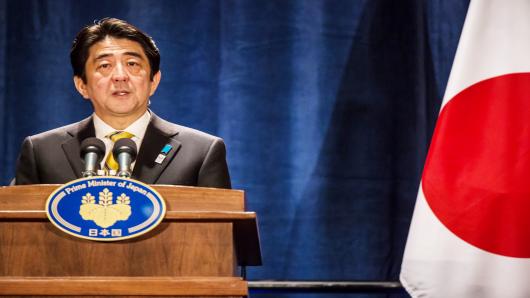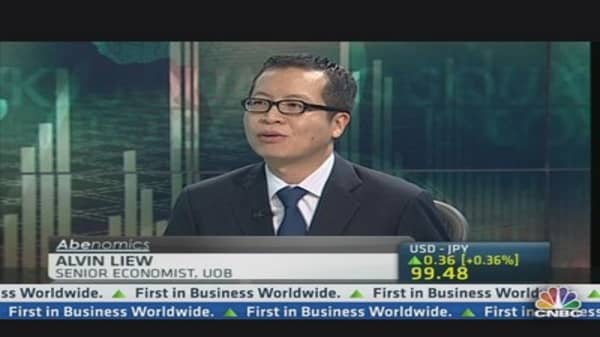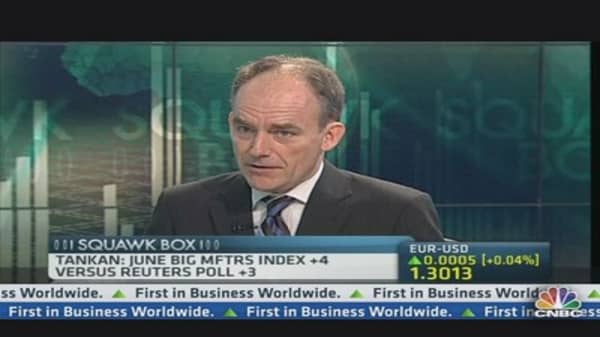Japanese Prime Minister Shinzo Abe could interpret the robust Tankan survey as a cue to relax, but if he fails to persevere with structural reform, the so-called "Abenomics" - or Abe's radical measures to boost the economy - could veer off track, analysts warned.
Sentiment among Japanese manufacturers moved into positive territory for the first time in nearly two years on Monday, according to the Bank of Japan's main economic indicator, the Tankan survey.
The headline index for big manufacturers' sentiment came in at 4, exceeding analyst forecasts of a 3 reading, according to a Reuters poll. Monday's result was a dramatic 12 point rise from the previous quarter's result which came in at -8.
(Read More: Latest Data Help Allay Doubts Over Japan's Policies)
Big firms also plan to increase capital expenditure by 5.5 percent in the current business year that ends in March 2014, the survey showed, more than a Reuters forecast for a 2.9 percent increase.
While most analysts celebrated the results as a clear sign "Abenomics" is working, others are looking past the data and pointing to the upcoming Upper House elections on July 21 as the real game changer. Even if Abe gains a majority, a thriving economy could make it more difficult for him to push through the final arrow of his policy agenda.






